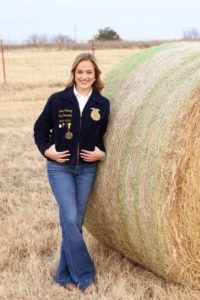Mon, 18 January 2021
SHOW NOTES INTRODUCING TOBY WINANS!In 1988 the Future Farmers Of America changed its name to the National FFA Organization because of Toby Winans. Toby Winans was only born 18 years ago, and 1988 is 32 years ago, so how is this possible? Well, Toby Winans is the perfect avatar for the person that the National FFA Organization was thinking of when they changed their name to reflect the growing diversity in agriculture. What the FFA recognized in 1988 was that there were a lot of students in the United States that were devoted to agriculture but who did not have the aptitude or desire to do the ground level work of farming. However, these students loved agriculture just the same and had something to contribute with their particular skill sets. The name Future Farmers Of America could have the connotation of excluding these students because they already knew that they were not future farmers. Capturing the talents and devotion of students like Toby is important. If we can, we want to keep students with talent as he has in agriculture. We need people like him to stay around. This is probably why Toby's FFA advisor refers to him as an "FFA member who 'saved the year'". Here is a note that she sent me:
Toby loves agriculture, and it is this life that he has grown up around. However, he has natural talent and a passion for technology. So, his talents will direct him towards supporting farmers rather than being one himself. His talent was recognized early on, and he has been fixing computers, printers, and everything else technology-wise at his school since his freshman year. They even created a position for his particular talents, and he is the chapter's vice president in charge of chapter technology. Toby now has his own drone business. He is using his love of both hardware and software to help farmers be more successful. He scouts fields for his customers with his drone and the use of the "Drone Deploy" software. He sees a future for himself in agriculture with this being his role. Toby is the epitome of the student that the National FFA was thinking of when they changed their name. Amazing students like this are what drives everyone in every aspect of the FFA, and what drives me to conduct so many of these interviews every year.
Direct download: OFI_971__Why_The_FFA_Changed_Its_Name___FFA_SAE_Edition___Toby_Winans___Taylorville_High_School_FFA.mp3
Category:FFA -- posted at: 12:30am MDT |
Sat, 16 January 2021
Direct download: OFI_970__Captured_By_Cattle_The_Worlds_Worst_Criminal.mp3
Category:general -- posted at: 12:30am MDT |
Fri, 15 January 2021
SHOW NOTESThere are two fundamental issues that have always plagued me when it comes to farming. First, what do we do about urban sprawl and disappearing farm ground? Second, how can a person expect to start a successful farm and be a full-time farmer with land, input, and equipment costs being so high? So, when I was contacted by The Conservation Fund asking to be on the show and talk about their answers to these questions, I jumped at the chance. The folks at The Conservation Fund are pro-agriculture, and they are particularly fond of locally produced farm goods that follow their model of sustainability. They also abhor disappearing farm ground. So, they are working to increase locally produced goods while slowing urban sprawl. Right now they are doing this in the 30 counties, metro area of Atlanta, Georgia as a pilot project. But the prospects are very good for expansion. In this episode, I speak with Stacy Funderburke, who is heading up the "Working Farms Fund" on behalf of The Conservation Fund in the Atlanta metro area. This program aims to pay farmers the actual market cost for their farms. Once purchased, they place the farms into an agricultural easement so that they will be farmed in perpetuity. And this is when the fun really starts. Once these two things have taken place they match up the particular farm with an experienced farmer, who has been leasing ground or working as an employee and is looking to start their own enterprise. Because the land has been placed in an agricultural easement the price is not driven up by demand from developers. This gives the new farmer a reasonable shot at purchasing the land. To begin the new farmer enters into a lease on the farm ground with an option to buy. The Conservation Fund helps the new farmer with obtaining resources, sharing equipment, and developing markets. In exchange, the City Of Atlanta and its surrounding metro area have another local producer who can bring locally grown food to market in that area. It is a win/win/win situation. You don't need to be from Georgia to participate in this and be selected as one of the new farmers. We will tell you all about this in today's episode. Connect with Stacy Funderburke and The Conservation Fund: Website: conservationfund.org Facebook: facebook.com/theconservationfund Instagram: instagram.com/theconservationfund
Direct download: OFI_969__The_Answer_To_Urban_Sprawl_And_The_Question__How_Can_I_Start_A_Farm_____Stacy_Funderburke___The_Conservation_Fund.mp3
Category:farming -- posted at: 12:30am MDT |
Thu, 14 January 2021
SHOW NOTESKEY IDEAS:Entrepreneurship is the only option If you want to farm, the further away from a major city you can get the more the land prices will reflect on their production capability. But, there will be fewer jobs available to you, likely with lower salaries. How will you produce your off-farm income? 92% of farmers in the U.S. rely on it for household income, either created by themselves or their spouse. If you are going to take a full-time job, what do you do when you need time for farm management activities?
If you are making a big transition from a city career to a rural & farming lifestyle you might have skills and/or education that is not applicable in your new hometown. If that is the case, can you use these skills to create your own business?
If you are going to keep a full-time career job in the city, what is a reasonable commute?
Don’t look at entrepreneurship as your lifestyle choice. Look at farming as your lifestyle choice and figure out a game plan that will allow you to make that happen. In this model, the production of your off-farm income no longer defines your working life. It is now the means to allow your working life. This is why I call agriculture the “ultimate lifestyle business”. Other than being an actor, artist, or musician this is the only profession where people will work a second job, just so they have a shot at doing the first. We are choosing this business of agriculture because there is such a strong, intrinsic reward for us that we are willing to make these sacrifices just for the chance to do it for a living. We are choosing this career for the lifestyle because as a brand new farmer who has to develop their operation we cannot do it for the earnings. If our career decision was solely earnings-based this would not make any sense. We could clearly make more money, in less time, with less risk and more benefits at a city job, in a subdivision house with city neighbors. CHOOSING YOUR BUSINESS When you are choosing your business try to look at things with demand in the area and nobody filling it. Or, look at a business in which you could do a better job? Or, find a business that somebody wants out of with good potential. I would refer you to episode #480 about finding a true business opportunity. Don’t get hung up on the earning capability of your business idea in its first phases. One thing I can say for sure is that as you start working for yourself you will start to see opportunities and ways to generate more revenue than you were unable to see prior to beginning. In other words, after you get started you are going to find more money. YOUR ONLY OPTION How are you going to farm well enough, that you can eventually become that full-time farmer (or most time farmer) that you want to be? As you are starting out, whether it be with livestock or crops, you need every advantage you can get. That might mean a 100% calf crop. Or that might mean a couple of bushel yield bump. One thing I learned in my two years of riding around with crop advisors was that the best farmers seemed to be the ones that were out there with their herds or crops. They were able to detect subtle changes or illness early and do something about it before it hurt their bottom line. How can you do this if you are at work all day? How do you get the time to react if you discover a problem when you’ve driven home from a long day of work? NOT AN OBLIGATION All you have to do is go onto social media to find lots of people who will tell you not to try farming. They will say many things such as:
These words, unfortunately, come from people who were just like you at one point. They had a dream of farming, and for one reason or another it did not work out. There are no guarantees here, and we could all suffer the same fate and have to give up our farm someday, I included. Farming is a business, and it may not go our way. But, we don’t want to end up discouraging others. I think that discouragement comes from years of struggling to work full-time and farm on the side. When you do that you can burn out, and pretty soon the dream fades away. The farm becomes just another obligation, and you then look at it only from the mathematical perspective and decide it is not worth it. I don’t want any of us to lose the passion for this lifestyle because of burnout. Entrepreneurship solves so much of this for us. It allows you to manage your farm better, to give you every advantage possible. And, it helps to keep us invigorated and avoid that dangerous burnout. Will you use entrepreneurship to create your Off-Farm Income?
Direct download: OFI_968__Entrepreneurship_Is_The_Only_Option_If_You_Want_To_Start_A_Farm_From_Scratch_Episode_510_Revisited.mp3
Category:farming -- posted at: 12:30am MDT |
Wed, 13 January 2021
SHOW NOTES INTRODUCING KAYLA REED!They say that fortune favors the bold, and after hearing this episode I think you will definitely agree. In today's episode, I am interviewing Kayla Reed. Kayla is a former chapter president at the Pulaski High School FFA Chapter, and she is currently a student at the University Of Wisconsin, Stevens Point. Something happened in Kayla's interview that has only happened to me once before. One of her FFA advisors sent in a special note about her and her accomplishments. Here is what he said,
My interview with Kayla certainly lived up to what Mr. Erdmann said about her. Just one small part of her story will illustrate this. When Kayla was in the 8th Grade she learned that a fisheries biologist for the Wisconsin Department Of Natural Resources (DNR) was planning to release Muskie fish into a lake that she had grown up going to. She knew that several people were against this move, and she found herself getting involved. As an 8th grader, Kayla spent two weeks researching this issue and then wrote a position paper on why the fish should not be introduced. She then went to a town hall meeting held by the fisheries biologist about this issue and presented the paper to him. Ultimately, the fish were not introduced into the lake. The biologist was so impressed with Kayla's efforts on this that he allowed her to job shadow him, and he became a mentor to her in the area of fisheries biology. This is truly a David vs. Goliath story. Here was the biologist with the state position, the degrees, the research, and the experience. And here was Kayla who had not completed 8th grade yet, had no experience, was much younger, was not an adult, and who wrote a paper on her opposition to the biologist's plan. That is the definition of courage and boldness. One of the main points we stressed in this interview with Kayla is just how being bold and courageous can open doors for you that would never expect. Most kids in Kayla's position might have feelings about the issue, but would never be so bold to take on somebody who is respected as an expert. But, she did. And by so doing, she found a friend and mentor and opportunity. Oh, and she found her passion. This is a lesson for life that everyone can emulate. Do and say what you believe and let the chips fall where they may. This is the pathway to finding your happiness.
Direct download: OFI_967__Fortune_Favors_The_Bold___FFA_SAE_Edition___Kayla_Reed___Pulaski_High_School_FFA.mp3
Category:FFA -- posted at: 12:30am MDT |
Tue, 12 January 2021
Direct download: OFI_966__Are_You_Living_In_Your_Dream_And_Dont_Even_Know_It_.mp3
Category:general -- posted at: 12:30am MDT |
Mon, 11 January 2021
SHOW NOTES INTRODUCING MEGAN CLARK!I once heard luck defined as "when preparation meets opportunity". I love this definition of luck because so many people on the sidelines think that people who achieve could easily be replaced by any other person off of the street if they just happened to have "luck" shine on them that day. When I first started hosting a radio show and podcast for D&B Supply one of our family friends asked me about how that had occurred. Before, I could explain she said "just fell into it?" or, to paraphrase, "just got lucky?" There was a bit of luck involved in this happening. I had actually called D&B Supply to inquire about creating a podcast for them, and I was lucky in the fact that they had decided to make a radio show and were trying to figure out how to find a host. But, what my friend didn't see was that I had invested my own money in equipment for broadcasting about two years earlier. And, for the past two years, I had been hosting a growing podcast called Off-Farm Income with no pay. But during that time I had been developing my skills as an interviewer, learning to find guests, and becoming a consistent broadcaster. It was this background, combined with the fact that D&B was looking for a host that led to me being chosen for this opportunity. My interview with Megan Clark reminded me of this saying and this part of my life. No youth organization in the entire world does what the FFA does. The FFA does a great job of developing skills in students (preparation) and creating situations in which they can use those skills to accomplish great things (opportunity). This is done through the efforts of the National FFA, State FFA Organizations, State FFA Foundations, Regional FFA Associations, and individual chapters. Megan had a lot of things pulling her towards the FFA. She lives on a farm and her parents and sister were all in the FFA. But it was going to one of her sister's award banquets and seeing FFA members being rushed up onto the stage to receive awards and accolades that really lit Megan's fire. By the time Megan was in the 8th Grade, she had joined the FFA. Megan took this fire and started working hard, being very active, and achieving in her FFA chapter. A few years prior to her even being eligible to become an FFA member some innovative leaders in her region of Iowa had started a media group comprised of FFA members called Current Ag Concerns. This has now transformed into CAC Media Group. So, while Megan was growing up and waiting to become eligible to be in the FFA, people were already creating opportunities that she could later take advantage of.
The trip went well, and Megan brought the same work ethic and enthusiasm that she had for the FFA to the CAC Media Group. Soon, she became a regular fill-in on the team. Then it was time to find new, full-time, team members to replace the graduating seniors, and Megan applied. She was selected. Now, she is a full-time team member, and she has traveled all over the United States covering events and conducting interviews. She has been published in major publications on the radio and on cable television networks. Megan is one of the "lucky" ones. At least in the way that I define it. She worked hard, demonstrated value and when the opportunity came, she was ready!
Direct download: OFI_965__When_Preparation_Meets_Opportunity_Great_Things_Happen___FFA_SAE_Edition___Megan_Clark___Central_Dewitt_High_School_FFA.mp3
Category:FFA -- posted at: 12:30am MDT |
Sat, 9 January 2021
Direct download: OFI_964__Straight_Talk_About_The_Roots_Of_Rural_Crime_And_Securing_Your_Assets.mp3
Category:general -- posted at: 12:30am MDT |
Fri, 8 January 2021
SHOW NOTES Today's episode is really special for two reasons. First, it has the potential to be very impactful on the FFA. Second, 80% of the world's hungry people are farmers. But, unlike U.S. farmers, they are subsistence-based and less sophisticated. But programs like Growing Hope Globally are taking farming expertise and productivity from the U.S. and exporting it to these struggling farmers. On today's episode, Alex Morse will join us to explain what Growing Hope Globally's mission is. He will talk about helping farmers in many poor countries throughout the world and how you can get involved. He will also discuss how his organization developed a curriculum for FFA students to help them contribute to worldwide agriculture through their supervised agricultural experiences.
SUPPORT A GROWING HOPE PROGRAM: CLICK HEREFollow Growing Hope Globally online here: Website: growinghopeglobally.org/ Facebook: facebook.com/growinghopeglobally Instagram: instagram.com/growinghopeglobally/ Twitter: twitter.com/GrowHopeGlobly
Direct download: OFI_963__Take_Your_Farming_Talents_International___Alex_Morse___Growing_Hope_Globally.mp3
Category:farming -- posted at: 12:30am MDT |
Thu, 7 January 2021
SHOW NOTESKEY IDEAS: In 2011 when we purchased our farm we had a long, long way to go. We bought 25 acres of weeds with a house on them. There were no fences, no irrigation, and the land had not been cultivated in years. I had a small, John Deer tractor with an 8' disk on the back, and I worked the ground with that. Tons of rocks came up while I disked, and they all had to be removed and deposited elsewhere. Progress was slow, and at times it seemed like this place would never resemble a farm. During all of that time on the tractor, I listened to farming podcasts. They inspired me, gave me the motivation to keep going, and helped me visualize what our place would be like someday. One of those podcasts that I listened to was hosted and produced by today's guest, Tim Young. Tim and his wife Liz were operating a farm in Georgia and selling cheese as their main product. They had a variety of livestock, and I really enjoyed hearing about their day to day farming exploits. Fast forward to today. Tim and Liz have moved on from that farm, and Tim is now trying to help other people succeed in their farming endeavors through his website and podcast, Small Farm Nation. The main thing that Tim learned about succeeding with his small farm was how to market products and sell directly to customers. In this episode, Tim and I talk about marketing your farm products, and how to develop a following that will patronize your farm business. Also, Tim discusses his Small Farm Nation Academy which he has built to help folks really perfect this process. He also has offered 20% off of the coast of the academy to anyone listening to this podcast and entering the code "matt20" at checkout. This is definitely worth checking out. CONTACT TIM YOUNG AT: Website: Small Farm Nation Facebook: https://www.facebook.com/timsmallfarmnation Instagram: https://www.instagram.com/smallfarmnation/
Direct download: OFI_962__How_To_Increase_Small_Farm_Revenue_And_Sales_Through_Marketing___Revisited_with_Tim_Young___Small_Farm_Nation.mp3
Category:farming -- posted at: 12:30am MDT |
Wed, 6 January 2021
SHOW NOTESIntroducing Cole Searle!I interview a lot of young men and women on this show who are devoted to agriculture. These days you hear so much about kids not wanting to take over farms or continue that lifestyle that when a student who is passionate about agriculture comes on the show you wonder what their parents did to help them love this life?
Of course, on this show, I reach out to many of the highest achievers in the FFA. Therefore, they are a self-selecting group. Students who love farming and agriculture and are passionate about what they are doing, naturally find their way to the top levels of the FFA. And, so I spend a lot of time talking to students who love this life and want to stay part of it. Even though that is the case, I always wonder what was it that sparked the passion in these students, and how could we spread it to even more youth in the U.S. It is probably a percentage thing, and even though it seems to me that all of them are this passionate, I am speaking to a very small percentage. In today's interview, I get to speak with Cole Searle. Cole is the 2020 Idaho State Star Farmer, an Idaho State Star winner, and was a National Proficiency finalist this year. In his short-term vision, he is looking at an American Degree as well as becoming the National Star Farmer. In his long-term vision, he is looking at a career in agriculture, especially working with cattle and horses. Cole is another one of these students where I wonder what did his parents do, or what event took place in his life that made him fall in love with farming. And, how do we spread that around? Cole has grown up around farming with his father managing several farms from Washington State all the way over to Ashton, Idaho where they have been for the past ten years. I know a little bit about where Cole lives and farms. I used to drive through Ashton several times per year on my way to and from college in Bozeman, Montana. And for the past five years, my daughter and I have taken a father/daughter trip every October and gone through Ashton on our way to Yellowstone National Park.
Ashton sits in a fertile valley, to the west of the Grand Tetons and the Wyoming/Idaho border. When you drive through Ashton you cannot help but pull over and take in the majesty of these unbelievable mountains. These are the most identifiable peaks in the Rockies, and they are right outside Cole's back door. I can absolutely see where Cole is coming from. Growing up in a peaceful valley, working outside, and staring at his mountain range on a daily basis is definitely a recipe for contentment and passion!
Direct download: OFI_961__Breathing_Fresh_Air_And_Farming_In_The_Shadow_Of_The_Grand_Tetons___FFA_SAE_Edition___Cole_Searle___North_Fremont_High_School_FFA.mp3
Category:FFA -- posted at: 12:30am MDT |
Tue, 5 January 2021
|
Mon, 4 January 2021
SHOW NOTESINTRODUCING EMMA VICTERY! Having a business model on your farm that is sustainable is challenging. Of course, if you are commodity-based there are so many factors that are outside of the control that you've got to get bigger and push harder. If you are smaller you are almost forced into being niche so that you can increase the size of your profit margins. And then of course, if you only offer one product you can get into really hot water if the price or demand for that product falls. In a perfect world, we would all know what type of farm business we were going to be involved in, in the future, and we could plan out our skill sets accordingly. Of course, there is no such thing as that perfect world. However, the FFA offers a future farmer the best chance of coming as close to this perfect world as anything that I know. This is illustrated very well by today's guest, Emma Victery. Emma has grown up on her family's farm in Oklahoma. She is hoping to take it over at some point in the future. She and her father have been looking at different products they could sell, different markets they could be in, and different ways to grow the business so that it will last for Emma and for future generations. Just recently they began marketing bulls as a compliment to their commercial herd. Looking into the future, Emma sees the sale of embryos and using embryo transfers on their farm as a way to offer other products and to really speed up the rate at which they improve their genetics. Right now, Emma is a senior in high school. But that does not stop her from looking into the future and trying to figure out how she is going to make all of this happen. Emma will start college at Oklahoma State University in the fall of 2021. She is planning on double majoring in animal science and agricultural communications. She wants to go to veterinary school, become a veterinarian, and specialize in reproduction so that she can use those skills for embryo transfers on their farm. This would also give her a great form of off-farm income. Right now she is taking over the marketing responsibilities on their farm, and she plans on using her studies in agricultural communications to strengthen her abilities in this part of the business. All of her efforts have led Emma to be the 2020 National Proficiency Winner in Beef Production Placement. She is looking at applying for several more proficiency awards going forward, and feels like her journey in the FFA has just begun. She has also been accepted to the honors college at Oklahoma State already due to her academic performance. Emma is going to be a force to be reckoned with in the cattle industry, and it is going to be fun to watch!
Direct download: OFI_959__Planning_Multiple_Streams_Of_Revenue_For_Your_Farm_In_High_School___FFA_SAE_Edition___Emma_Victery___Chickasha_High_School_FFA.mp3
Category:FFA -- posted at: 12:30am MDT |
Sat, 2 January 2021
Direct download: OFI_958__Dogs_And_Rural_Crime_-_The_Good_And_The_Bad.mp3
Category:general -- posted at: 12:30am MDT |
Fri, 1 January 2021
Direct download: OFI_957__Happy_New_Year_From_The_Brechwald_Family.mp3
Category:general -- posted at: 12:30am MDT |
Off-Farm Income

Categories
generalfarming
FFA
rural crime
vicuna
Agricultural Colleges
Archives
AprilMarch
February
January
December
November
October
September
August
July
June
May
April
March
February
January
December
November
October
September
August
July
June
May
April
March
February
January
December
November
October
September
August
July
June
May
April
March
February
January
December
November
October
September
August
July
June
May
April
March
February
January
December
November
October
September
August
July
June
May
April
March
February
January
December
November
October
September
August
July
June
May
April
March
February
January
December
November
October
September
August
July
June
May
April
March
February
January
December
November
October
September
August
July
June
May
April
March
February
January
December
November
October
September
August
July
June
May
April
March
February
January
December
November
| S | M | T | W | T | F | S |
|---|---|---|---|---|---|---|
| 1 | 2 | 3 | ||||
| 4 | 5 | 6 | 7 | 8 | 9 | 10 |
| 11 | 12 | 13 | 14 | 15 | 16 | 17 |
| 18 | 19 | 20 | 21 | 22 | 23 | 24 |
| 25 | 26 | 27 | 28 | 29 | 30 | |
Syndication

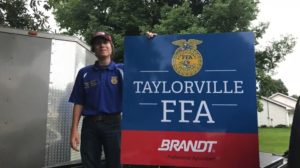
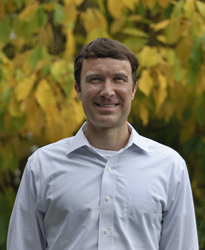
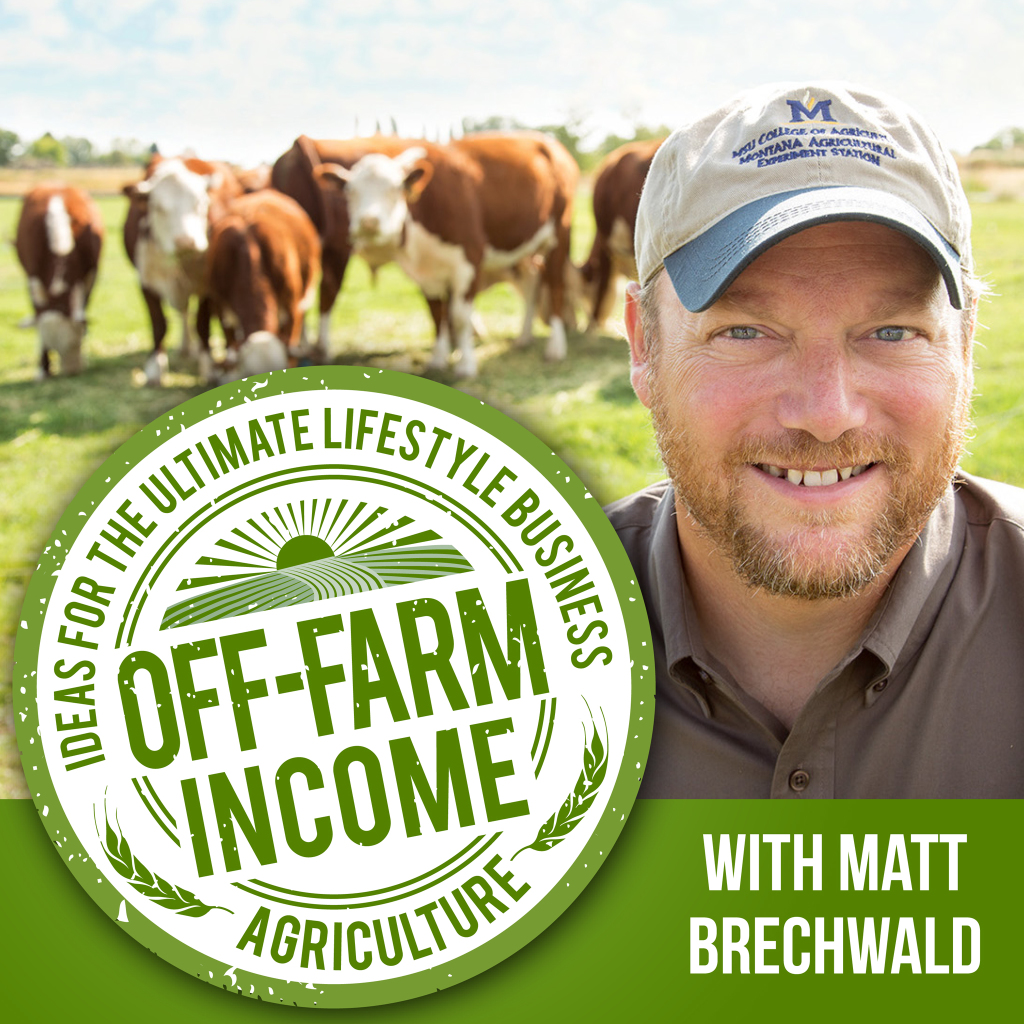
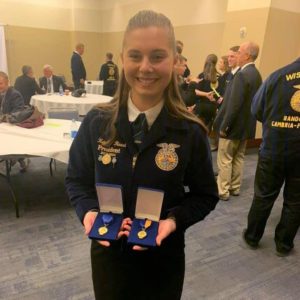
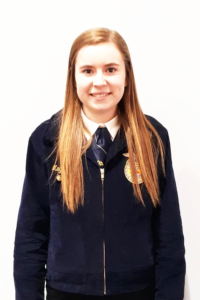
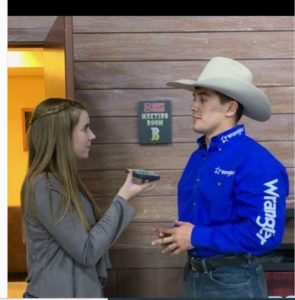 During Megan's sophomore year of high school, these two paths converged. Megan's passion and preparation met the opportunity created by the CAC Media Group. The National Western Stock Show in Denver, Colorado was coming up and the CAC was traveling there to cover the event. Somebody on the team was unable to make the trip, and they needed to find a student to fill in. Megan's FFA Coach recognized her talent and hard work based on how active Megan had been up to that point. She invited Megan to come on the trip and fill in.
During Megan's sophomore year of high school, these two paths converged. Megan's passion and preparation met the opportunity created by the CAC Media Group. The National Western Stock Show in Denver, Colorado was coming up and the CAC was traveling there to cover the event. Somebody on the team was unable to make the trip, and they needed to find a student to fill in. Megan's FFA Coach recognized her talent and hard work based on how active Megan had been up to that point. She invited Megan to come on the trip and fill in.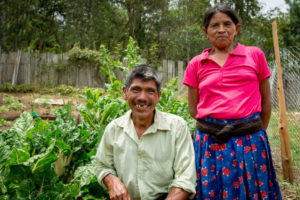
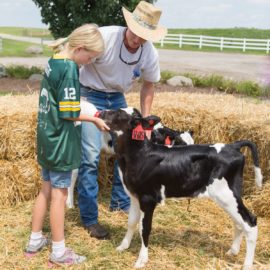 Alex specializes in helping farmers in Central America, and he has traveled to small holder's farms all throughout that region. He has even taken FFA students with him to see who they were impacting with their efforts. He has some amazing stories to share, and he describes people trying to farm in conditions that no American farmer would ever consider.
Alex specializes in helping farmers in Central America, and he has traveled to small holder's farms all throughout that region. He has even taken FFA students with him to see who they were impacting with their efforts. He has some amazing stories to share, and he describes people trying to farm in conditions that no American farmer would ever consider.
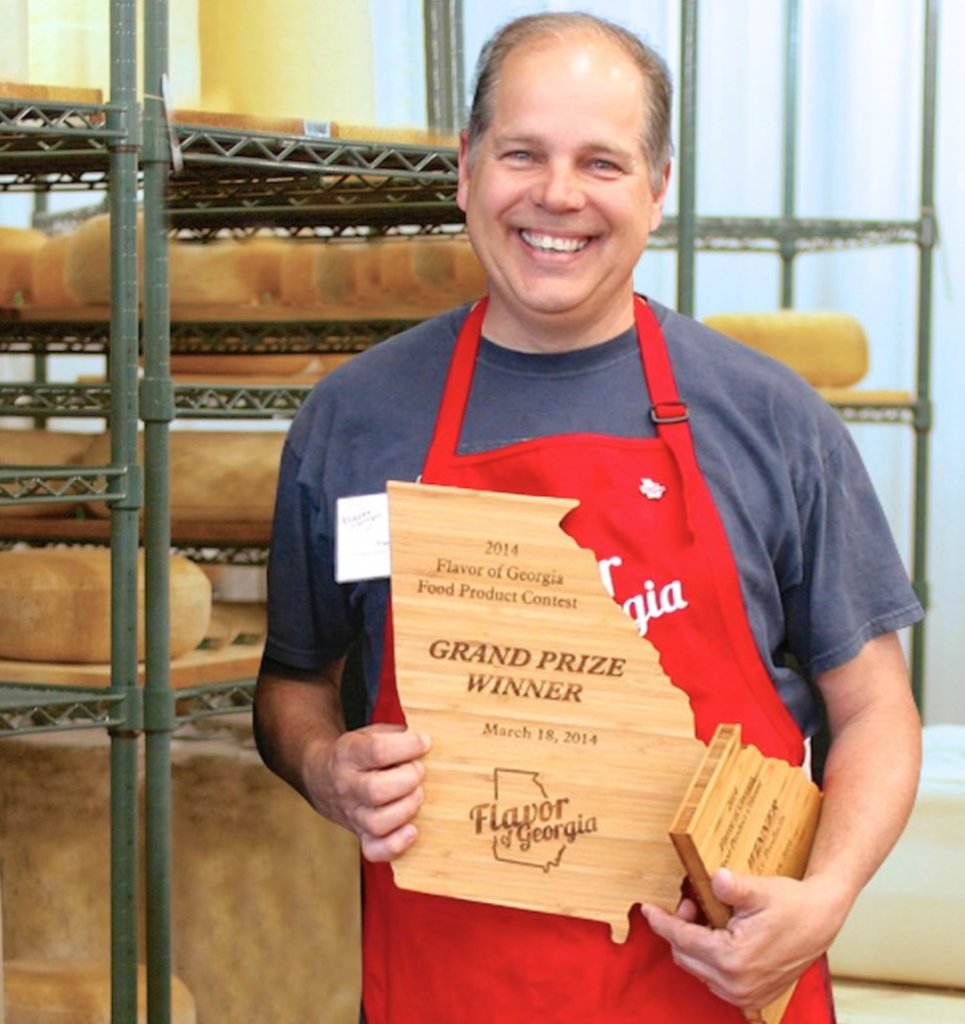
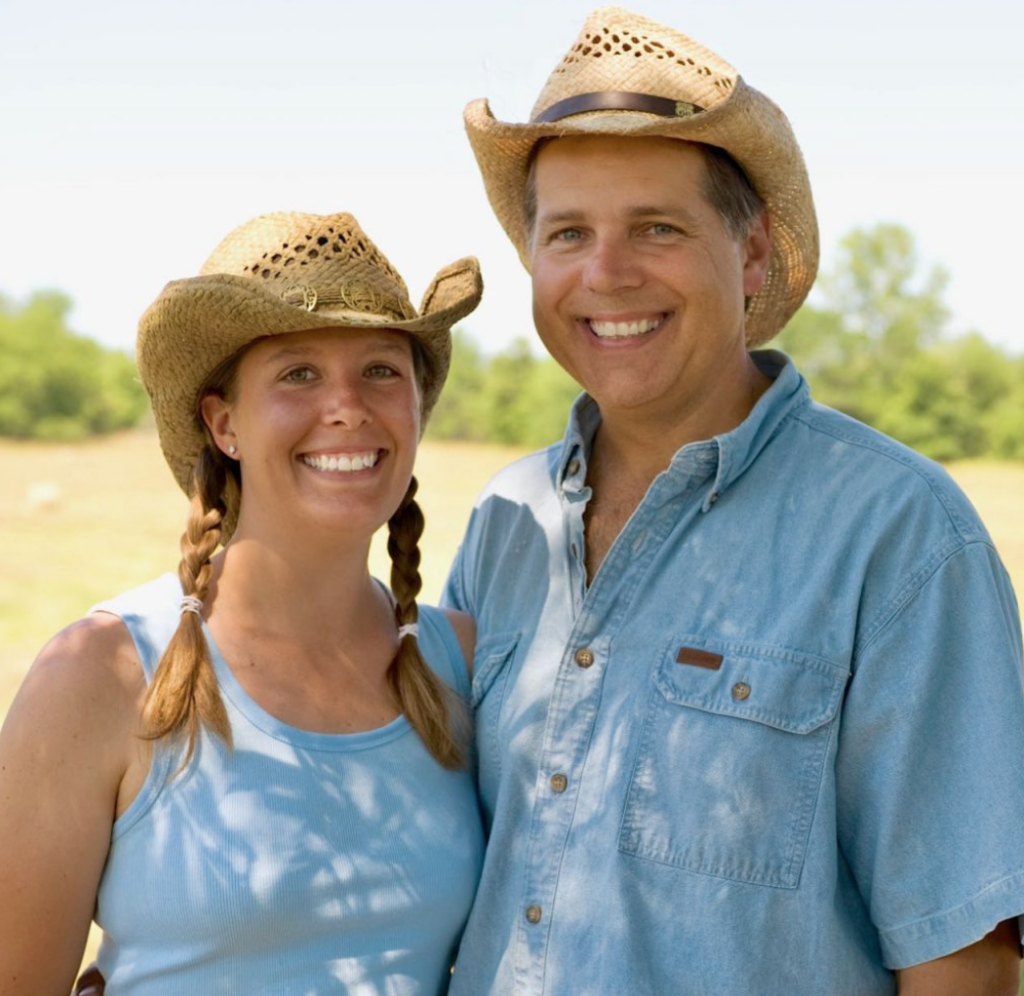
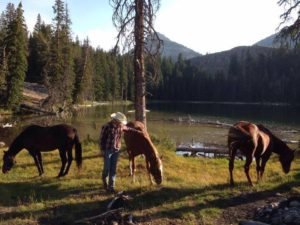
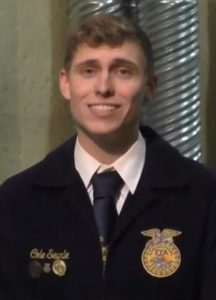 In Cole's case, I think I can solve a little bit of the mystery of what his parents did to inspire him to be so passionate about farming. The answer is, they moved to Ashton. I can visualize Cole out on the farm on a crisp, June morning, driving a tractor or irrigating. And as the sun is coming up, there is something casting a long shadow over him. That something is the peaks of the Grand Tetons.
In Cole's case, I think I can solve a little bit of the mystery of what his parents did to inspire him to be so passionate about farming. The answer is, they moved to Ashton. I can visualize Cole out on the farm on a crisp, June morning, driving a tractor or irrigating. And as the sun is coming up, there is something casting a long shadow over him. That something is the peaks of the Grand Tetons.